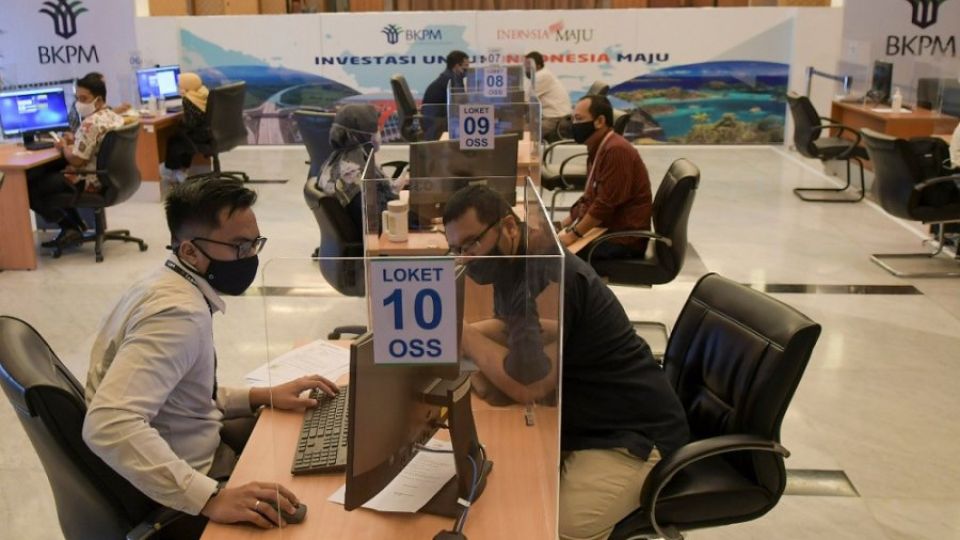May 4, 2023
JAKARTA – A sense of alarm is in order when Indonesia scores poorly against regional peers in a comparative study on the business environment. After all, this is exactly what legislation over the past few years, notably the far-reaching Job Creation Law, was meant to fix.
The Economist Intelligence Unit (EIU) study placed Indonesia in the 58th spot among the 82 countries assessed for their business environment.
That in itself looks pretty bad, but the fact that emerging economies like India (50th place), Vietnam (45th), Thailand (33rd) and Malaysia (26th) did much better is of particular concern, because these all compete with Indonesia for investment from China, the United States, Japan, Europe and elsewhere.
Furthermore, all those countries have risen in the ranking since the EIU’s last assessment, with Vietnam’s 12-spot leap over its year-ago position making it the biggest gainer of all countries. Indonesia, meanwhile, fell back by three places.
Even without knowing the magical formula the EIU uses to produce its ranking of countries based on “91 crucial indicators,” and even though the EIU’s study may not carry the same weight as the World Bank’s discontinued (for now at least) Doing Business report, it should be taken seriously, and cause questions to be asked.
Have the reforms been thought out and implemented properly? Is the omnibus format the most focused and transparent way to tweak legal regulations for greater ease of doing business? Could constraints on the employment of foreigners be holding back some sectors?
Questioning planned regulatory changes and even second-guessing those already implemented is a healthy process, even though it should not lead to hasty or erratic course corrections.
If the EIU study keeps us on our toes and prevents us from resting on our laurels, which would be tempting given Indonesia’s robust GDP growth, that is great.
But we all know from personal experience that comparing oneself to others can be less than helpful and even hurt our self-esteem. A rank is not an objective indicator of success, and rising or falling by an ordinal number does not equate with absolute improvement or disimprovement.
Furthermore, the indicators that determine the ranking may not be the ones that matter most to those being ranked. And what matters for Indonesia is sustainable prosperity.
While businesspeople in Indonesia have plenty of legitimate gripes about the terms and conditions of operating in the country, which may have dragged down Indonesia’s EIU ranking, they will put up with a lot of those gripes in return for the country’s macroeconomic promise.
No offense, but does rank 58 reflect where Indonesia stands in the eyes of investors?
The country achieved the fourth-highest gross domestic product (GDP) growth among the Group of 20 economies last year at 5.3 percent, and in April, the International Monetary Fund revised up its forecast for the current year. Southeast Asia’s largest economy saw US$22.4 billion worth of direct investment realized in this year’s first quarter, reflecting 16.5 percent annual growth. More than half of that came in from abroad as foreign direct investment (FDI) rose 20.2 percent over a one-year period.
In short, the opportunities afforded by Indonesia’s macroeconomic strength are a pull factor for investment, even though they seem strangely at odds with the ranking.
Perhaps there are more complaints about the specifics of doing business in Indonesia than in many other countries, but on the other side of the equation the market Indonesia has to offer is also larger, younger and growing faster than that of many other countries.
In a way, this is similar to Indonesia getting away with resource nationalism. On the one hand, industrialists are unhappy about protectionist bans on metal mineral exports, but on the other hand they are loath to miss out on the opportunities this affords those investing in downstream businesses.
Many foreign manufacturers want in on Indonesia’s budding electric vehicle (EV) battery industry, and the country’s ranking by the EIU will hardly be their foremost concern.


